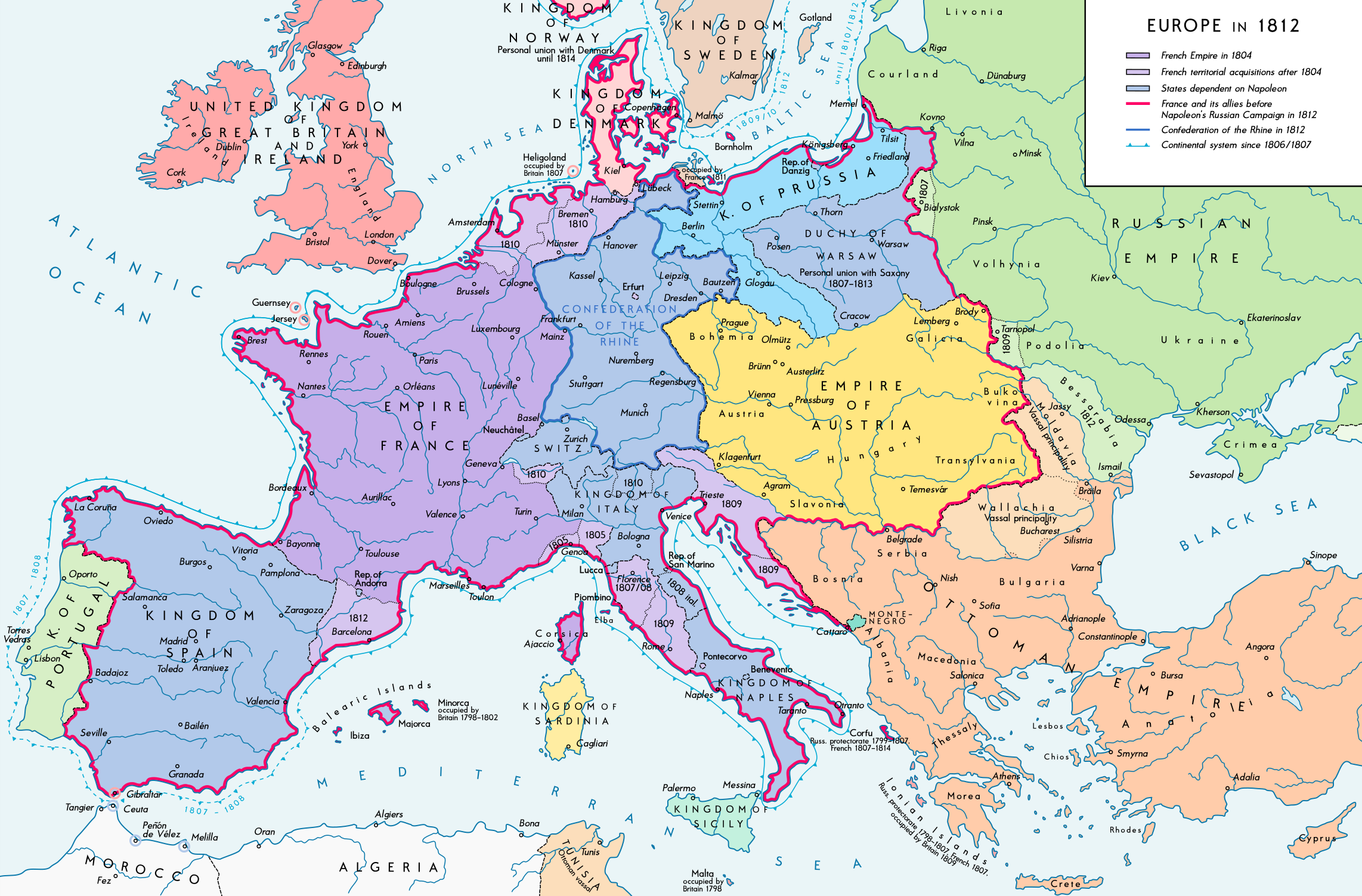German intellectuals launched a campaign to check the great influence that the French language and French culture had gained over their divided lands.
Jacob Grimm (1785-1863) and his brother Wilhelm (1786-1859) contributed not only their very popular Fairy Tales (published 1812-1815) but also research designed to prove the superiority of the German language. The philosopher J. G. Fichte (1762-1814) delivered at Berlin the highly patriotic Addresses to the German People (1807-1808), claiming that German was the Ursprache—the fountainhead of language. The Germans themselves, Fichte continued, were the Urvolk—the oldest and most ethical of nations.
The new German consciousness was evident even when Austria had reentered the war against France in 1809. While the new spirit enabled the Austrians to make a better showing, they were narrowly defeated at Wagram (1809) and for the fourth time in a dozen years submitted to a peace dictated by Napoleon.
The Treaty of Schiinbrunn (1809) stripped them of their coastline on the Adriatic and assigned their Polish territory of Galicia to the grand duchy of Warsaw. Francis II gave his daughter to Napoleon in marriage, and his defeated land became the unwilling ally of France. Leadership in the German revival passed to Prussia.
The shocks of Jena and Tilsit jarred Prussia out of the administrative lethargy that had overtaken it since the death of Frederick the Great in 1786. The University of Berlin attracted Fichte and other prophets of German nationalism, and there they began to lay down the theories of a new German national state. Able generals and statesmen, most of them non-Prussian, came to power.
General Gerhard von Scharnhorst (1755-1813) headed a group of officers who reorganized the army on more democratic principles and improved its efficiency. The ceiling of forty-two thousand soldiers imposed by Napoleon was evaded by the simple device of assigning recruits to the reserve after a fairly brief period of intensive training and then inducting another group of recruits. By 1813 Prussia had more than 150,000 trained men available for combat duty.
The social and administrative reorganization of the Prussian state was inspired by the energetic Baron Karl von and zum Stein (1757-1831), an enlightened aristocrat from the Rhineland. Stein conciliated the middle class by granting towns and cities some self-government. He granted some civil rights to Jews. To improve the status of the peasantry, he sponsored an edict of October 1807 abolishing serfdom in Prussia.
The edict, however, did not break up the large Junker estates or provide land for the liberated serfs, many of whom thereafter led a difficult existence as day laborers. Nor did it terminate the feudal rights of justice the Junkers exercised over their peasants. Stein and others eliminated only the worst abuses of the Old Regime and left authority where it had traditionally rested—with the king, the army, and the Junkers.

